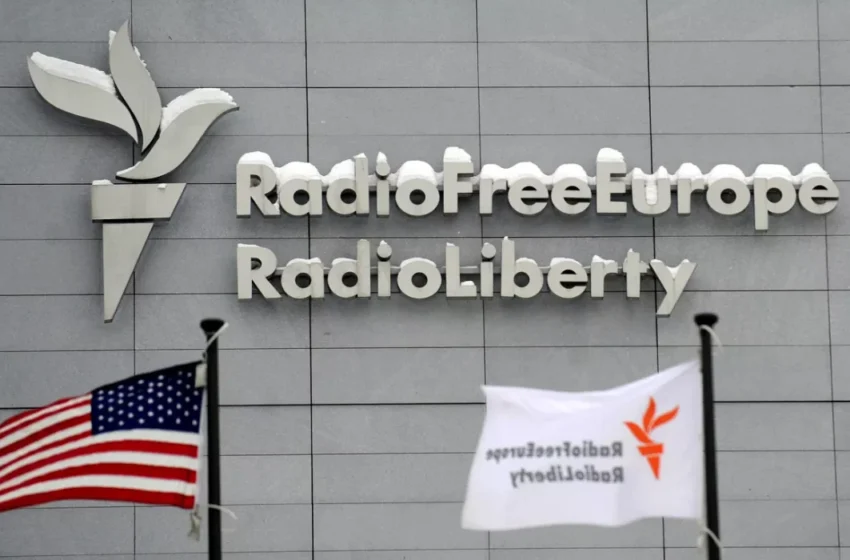
EU Politics news ( Europe Brief News): The EU will provide €5.5 million in emergency funding to support Radio Free Europe, as Czech-led efforts aim to secure the broadcaster’s ongoing operations.
After the Trump administration halted funding for Radio Free Europe, a pro-democracy media organization, on the grounds that it was pushing a liberal news agenda, the European Union agreed to provide emergency funds to help keep the organization afloat.
During the Cold War, Radio Free Europe/Radio Liberty began to broadcast.
Its shows are broadcast in 23 countries in the Middle East, Central Asia, and Eastern Europe in 27 different languages.
In court, its attorneys have been contesting the administration’s ruling.
According to EU foreign policy leader Kaja Kallas, the foreign ministers of the bloc have reached an agreement to pay €5.5 million to “support the vital work of Radio Free Europe.”
According to her, the “short-term emergency funding” serves as a “safety net” for independent media.
Although the EU cannot cover the organization’s global budget gap, Kallas stated that it can assist the broadcaster in “working and functioning in those countries that are in our neighbourhood and that are very much dependent on news coming from outside.”
She expressed her hope that the 27 EU members would provide additional funding to support Radio Free Europe in the future.
According to Kallas, while the US cuts foreign aid, the union has been searching for “strategic areas” where it can contribute.
The corporate offices of Radio Free Europe/Radio Liberty are located in Washington, but the journalistic headquarters are situated in the Czech Republic, which has been in the forefront of the EU’s efforts to secure funding.
A US federal judge last month mandated that the Trump administration return $12 million (€10 million) in congressionally allocated monies.
Legal representatives for the 75-year-old service stated that without the funding, it would have to close in June.
Kallas recollected in March how the network impacted her upbringing in Estonia, which was then a part of the Soviet Uni
“Coming from the other side of the Iron Curtain, actually it was (from) the radio that we got a lot of information,” she said. “So, it has been a beacon of democracy, very valuable in this regard.”
How will the EU ensure the independence of Radio free Europe?
To maintain RFE/RL’s operations, the EU has decided to contribute €5.5 million in emergency funding, especially in neighboring countries where independent reporting is essential. In light of the loss of U.S. subsidies, this financing is meant to be a short-term solution to support the broadcaster’s essential job.
Despite receiving funding from the EU, RFE/RL maintains its editorial and operational independence from direct political influence by keeping its corporate offices in Washington and its journalistic headquarters in the Czech Republic.
The purpose of the money is to support independent journalism.
The EU expects that all 27 member nations would contribute to a sustainable model that protects RFE/RL’s independence, but EU foreign policy chief Kaja Kallas has stressed that it cannot completely replace U.S. support.


